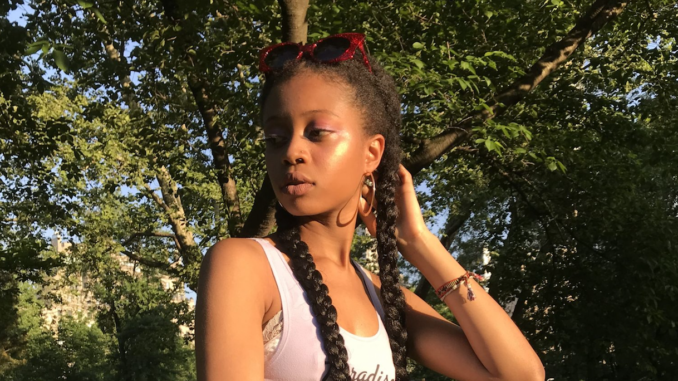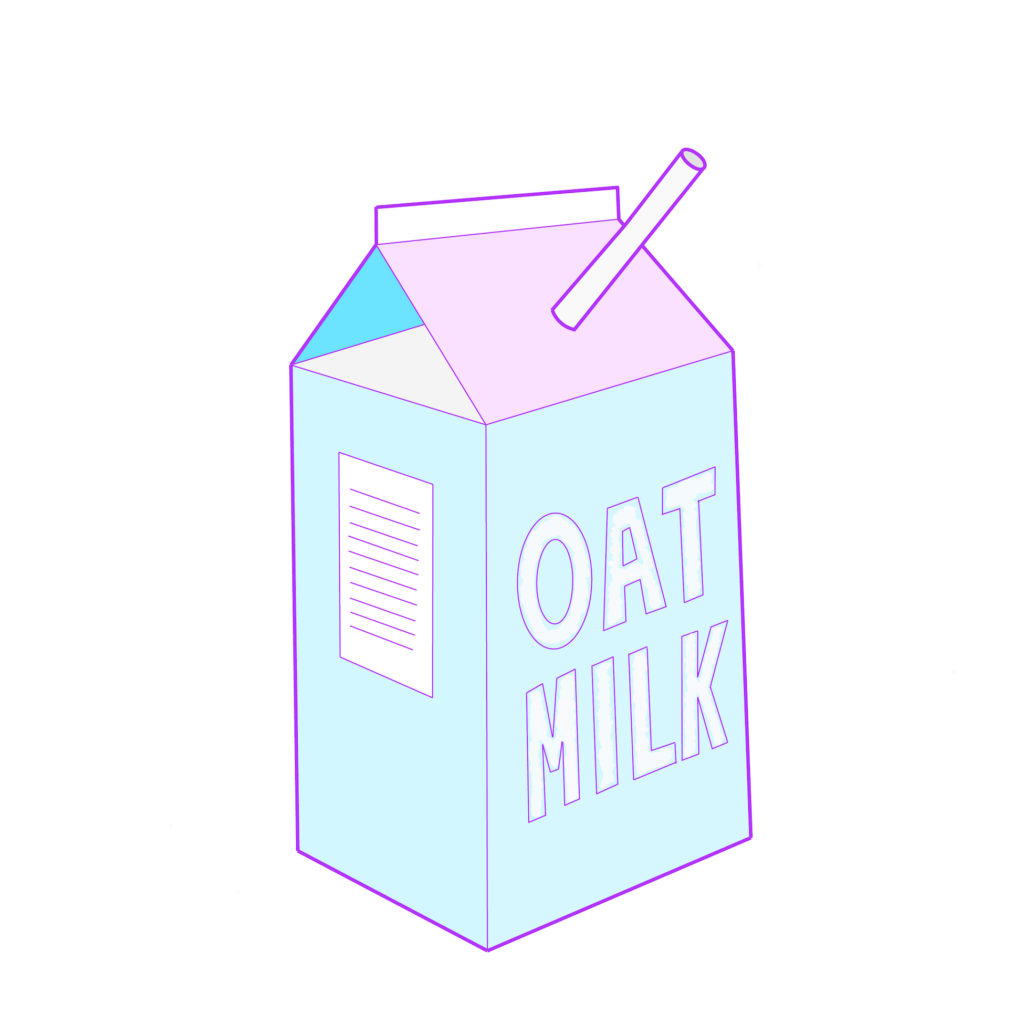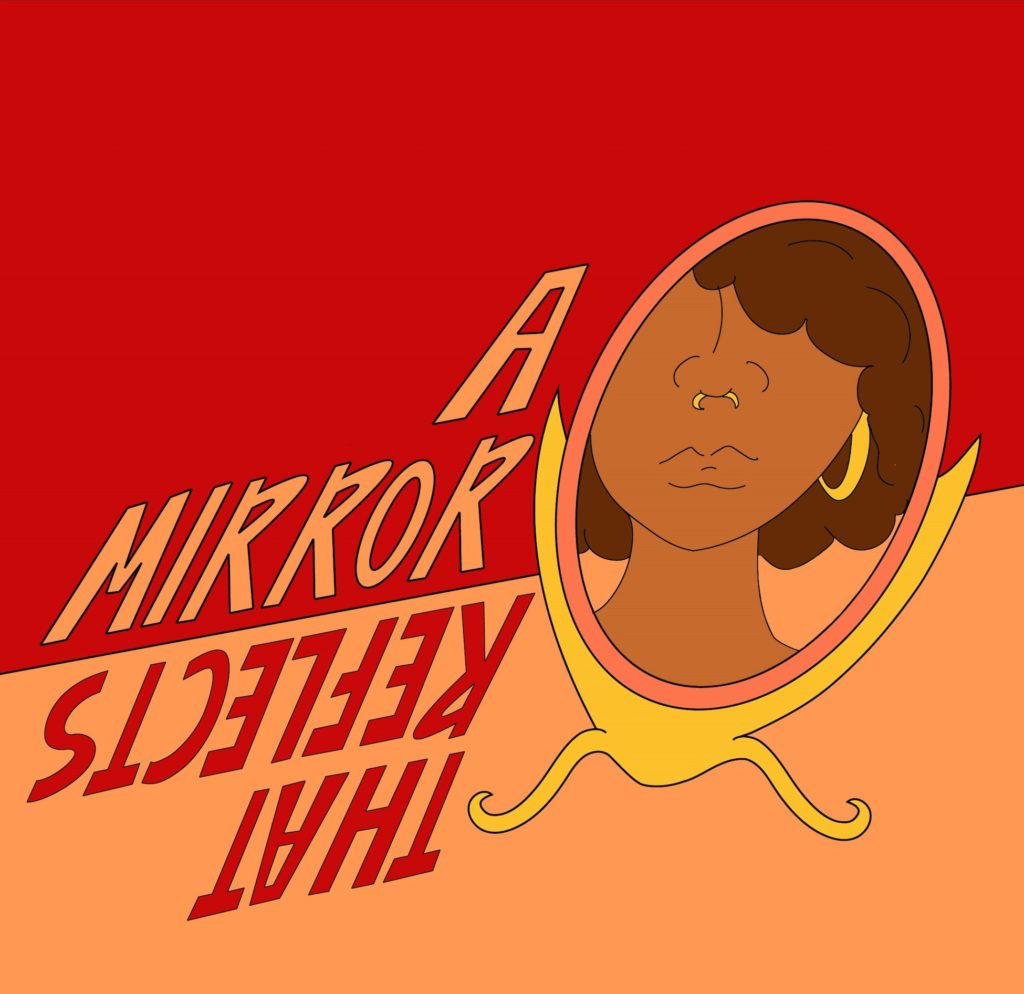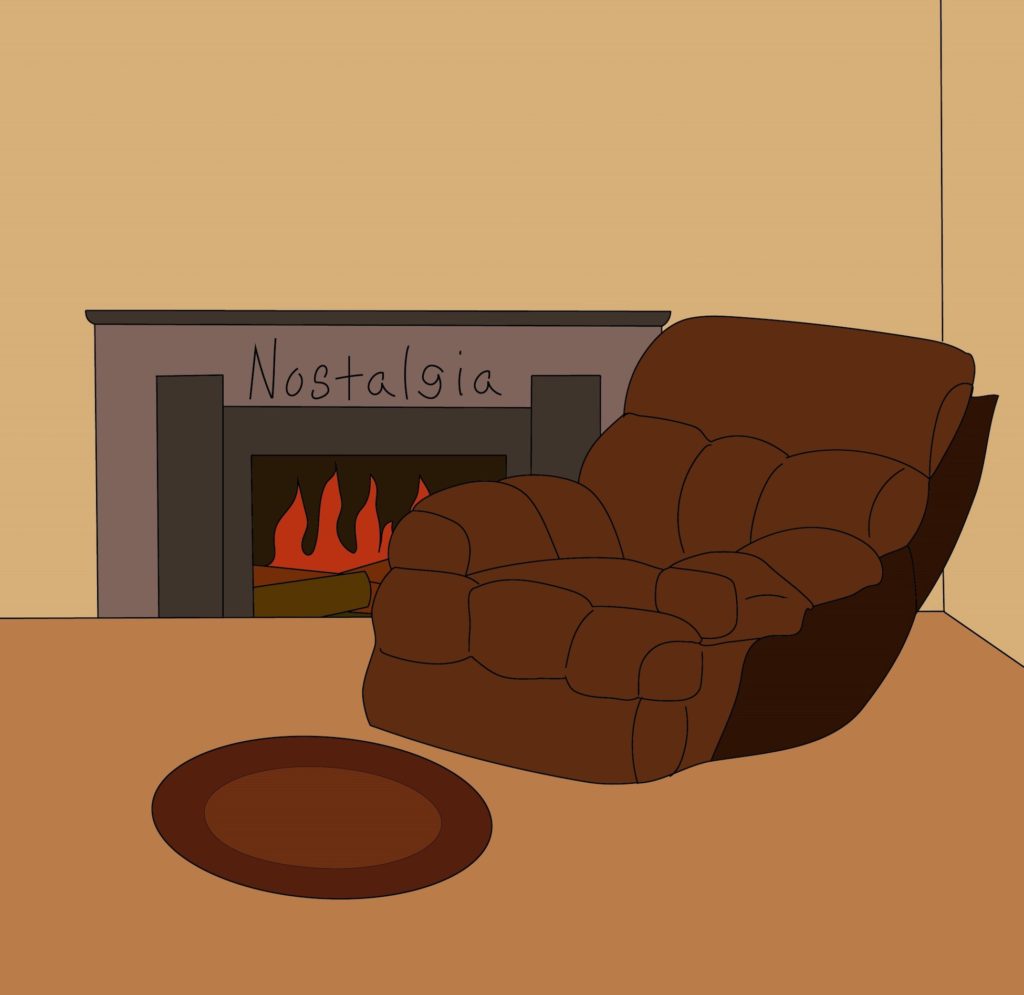
Tell us a little about yourself.
I live in New York City, as a host for three podcasts: Oat Milk, A Mirror That Reflects, and Nostalgia. Oat Milk is about my journey becoming vegan and all that is related to the lifestyle.

A Mirror That Reflects discusses life through the lens of socially marginalized groups–LGBTQ+, people of color, womxn, and more.

Nostalgia immerses listeners into small moments of nostalgia through narrative storytelling. All can be found on Spotify and Apple Podcasts under “honeysamurai.”

My website is www.honeysamurai.com and I can be found as @honeysamurai on all social media platforms including Instagram and Twitter.
What lead you to veganism? How long ago?
I became vegan two years ago, halfway through my junior year of college. My partner at the time was vegan, so I was naturally exposed to a lot more plant-based options. As I discovered those options, meat and dairy became less and less a big part of my diet. And then I watched “Cowspiracy” and “Earthlings,” which exposed me to the truths about those industries. I asked myself–if meat and dairy aren’t necessary for us to survive, just a pleasure thing, why continue to exploit animals for the sake of it? What is the real reason we hold onto meat and dairy–necessity, or habits? The next day I was vegan.

When you first went vegan how did you phase out your non-vegan food, clothing and other items?
By the time I declared officially that I was vegan, I had already phased out of most non-vegan products, partially subconsciously. I eliminated dairy out of health reasons, before I ever considered myself going vegan. I suffered from IBS, and I was looking to eliminate the triggers, dairy being the biggest one. I stopped putting cheese in my fridge and bought plant milk alternatives instead of cow milk, like almond or soy milk. Next I started to eat tofu scrambles in the morning, replacing eggs, which I knew carry tons of unhealthy cholesterol. I discovered new vegan dishes bit by bit (vegetable curry, to name one), and learned how to make some of my favorite dishes vegan-friendly so that the both of us could enjoy them. Once I officially confirmed myself as vegan, I started to pay closer attention to reading labels–in chips, cookies, muffins, everything–because my gut was becoming more sensitive to those products, and because I felt a moral responsibility now. Then I started to pay attention while shopping for clothes–checking if shoes are made from real leather, avoiding wool, etc. It’s still a learning process even now.
Do you make any exceptions for yourself or if you are married with kids – your family, when it comes to veganism? For example, how strict are you with your children’s veganism at school or at family gatherings?
My main exceptions are that if I am in a setting where vegan options are nearly impossible/food is generally less accessible (ex: another country, a different economic status, etc.), I will eat what is offered. Still, I wouldn’t particularly label this as an exception, given veganism by definition is to avoid animal exploitation as much as possible within your means, not to starve yourself.
Do you believe we should show children the process of how animals are turned into meats?
If referring to slaughterhouse videos and the like, no. However, we can show them empathy. We can show them how smart and loving animals can be. On a basic level, there should be some transparency about where the animal on their plate comes from. After reaching an appropriate age, yes, everyone should see what happens.
What does being vegan mean to you? For example, does it extend to not killing bugs and bees? Does it include not patronizing vegan companies owned by non-vegan parent companies? Does it affect the way you treat other humans?
To me being vegan means avoiding the exploitation of animals as much as realistically possible. If one bug accidentally flies into my apartment, I will try my best to trap it in a cup and release it outside. If my apartment becomes infested with, say roaches or bed bugs, I’m killing every last one of them because now my health is at risk. If I have the choice to choose between eating at a non-vegan restaurant or an all-vegan restaurant, I will choose the all-vegan one. However, I won’t chastise the non-vegan company with vegan options, because I know that in the long-run that still means that vegan options are becoming more accessible. The principles for veganism overlap with the principles for every form of exercising compassion (ex: fighting for gender and racial equality)–and humans are animals too.
Is it every vegan’s duty to become an activist?
Being vegan, to me, is already an act of activism. It’s choosing to say no to what the world insists you have to consume, it’s choosing to say no to violence. Grabbing a picket sign and a soap box isn’t necessary to earn the title of “activist” in that regard. And anyone who says they’re vegan but not for the animals isn’t vegan. They’re just consuming a plant-based diet.
How compassionate or empathetic are you towards non-vegans?
I will admit I used to be quite impatient with non-vegans, mostly because of the vicious arguments that I see online, the backhanded comments from relatives, and was just way too often surprised that the world didn’t change the second that I did. I’m teaching myself to be more empathetic towards them now, because had it not been for the empathy and patience of someone else, I would still be eating meat. It’s also just much better for my own mental health to work from a place of love rather than a place of judgement and hatred, which is the point of veganism in the first place.
Any recommended Vegan books?
I’ve heard really good things about Dr. Greger’s “How Not To Die,” which I still have on my list. He’s the doctor who recommends the daily dozen, which is an extremely helpful guideline for when you just start out as a vegan.
Any recommended social sites, blogs or pages?
Mic The Vegan is a great YouTuber to follow, because he touches on everything important related to veganism, and will remind you time and again why you became vegan in the first place. @veganandadorable is just about the best vegan Instagram page out there in my opinion, because she (Keyara) offers so many delicious easy recipes, hosts many uplifting food events in LA, and focuses on positivity and change–unfortunately hard to say for many vegan accounts. She’s also black and identifies as queer, which we need more of in the vegan community.
Do you have a favorite movie or videos or your own media that you want to share?
My favorite film documentary about veganism is “Cowspiracy,” because it finally sheds light on the politics behind the meat and dairy industries, why they get away with what they do.
What’s your favorite Vegan restaurant?
Luanne’s Wild Ginger in New York City.
Some encouraging words for new Vegans?
If you became vegan for moral reasons, remember to focus on change and how this decision brings you joy, rather than what’s still wrong. Your mental health is more important than anything. Don’t let any “angry” vegans tell you what you can or can’t do, thereby making veganism this inaccessible thing. If you get tempted into fish one night, don’t beat yourself up, just keep moving. Stressing over semantics or who’s “the better vegan” is only a distraction from what’s really important: the animals, the planet, our health.


Just thank you for your explanation
Interesting